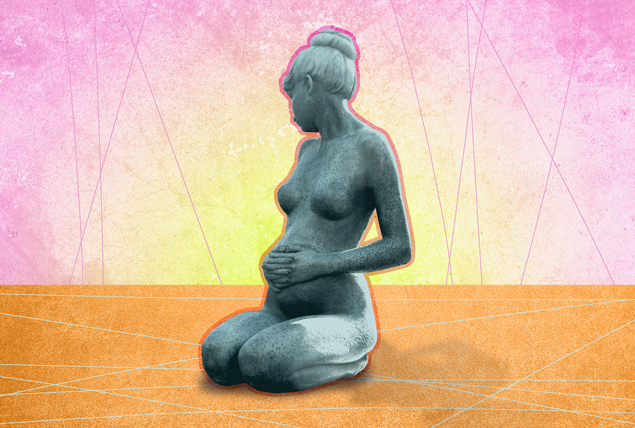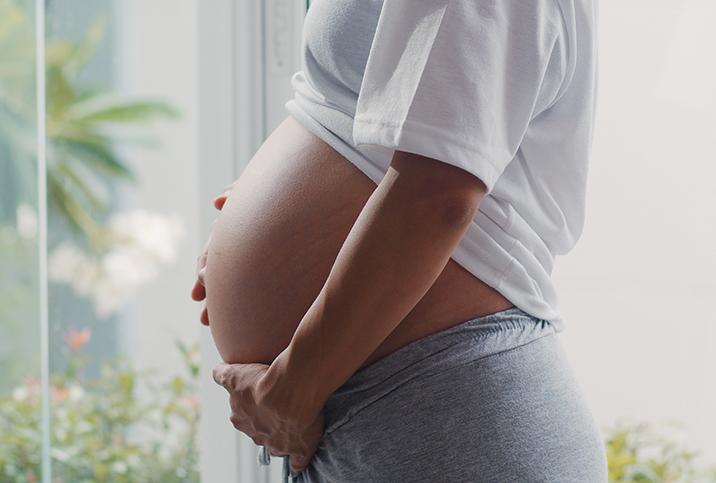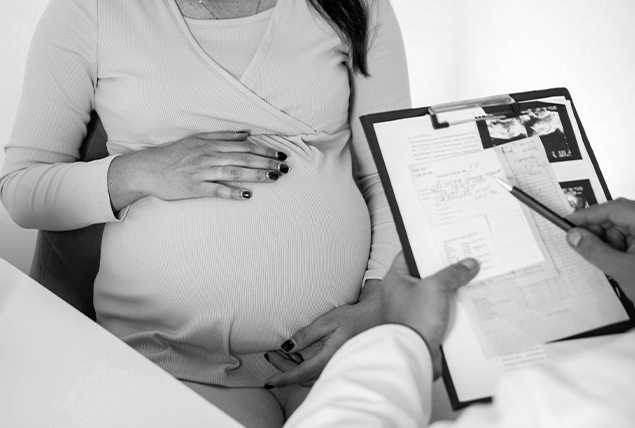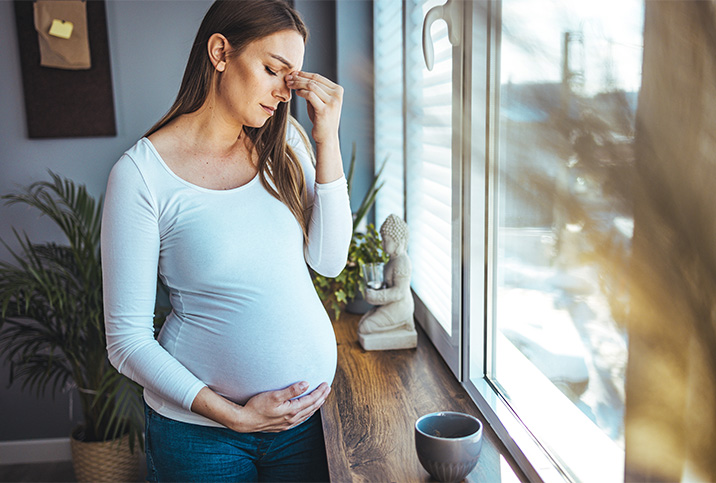Does Fibrodysplasia Ossificans Progressiva Affect Your Fertility?

Fibrodysplasia ossificans progressiva (FOP), or stone man syndrome, is a rare genetic disorder. FOP is a disease where muscle and connective tissues such as tendons and ligaments turn to bone. It can significantly increase sterility, but it doesn't necessarily stop a person from getting pregnant.
However, there are severe potential risks to consider before someone with FOP tries to become pregnant.
What is FOP?
Fibrodysplasia ossificans progressiva is a rare condition where muscle tissue and connective tissue, such as tendons and ligaments, become ossified, or turn into bone, outside of the skeleton over time. It can be painful.
The continuous bone growth affects joints, increasingly reducing mobility by hindering the movement of joints and tissues. In many cases, speaking or eating may be difficult.
FOP affects roughly 1 out of 2 million people globally, according to Cleveland Clinic.
The symptoms of FOP include the following:
- Malformed and abnormally large big toe
- Kyphosis or scoliosis
- Pigeon chest
- Reduced lung capacity
- Issues with speaking and eating
- Reduced ability to hear sounds
- Bone growth around the lungs that impairs breathing
- Swelling and inflammation across the back, shoulders and neck
- Red and purple spots on the body that are tender and inflamed
- Flare-ups of inflammation during an injury, disease, surgery and illness
- Immobility
Can you safely get pregnant if you have FOP?
Although research and studies are scarce due to the complexity of the condition and its rarity, there may be a connection between FOP and higher sterility. This may be due to the damage to soft tissues and various organs across the body.
People with FOP have a significantly diminished ability to reproduce. Conception may be difficult, but it isn't impossible. However, stone man syndrome can be dangerous for the mother and baby. There have been eight reported cases of childbirth in FOP patients, but no known FOP pregnancy has been full-term, according to a 2022 report.
"Additionally, some women with FOP may have difficulty conceiving due to restrictions on movement or other complications," said Alex Polyakov, M.B.B.S., an associate professor and obstetrician at the University of Melbourne in Australia.
Pregnancy is risky for any woman, but for those with bone formation on all areas of the body, the risk becomes far greater.
FOP is an autosomal dominant condition that carries a 50 percent chance of passing from the mother to the baby. Unfortunately, FOP increases the risk of a miscarriage due to the ossification of the abdominal wall.
This genetic disorder, sometimes nicknamed human statue syndrome, can completely stop the menstrual cycle but may not cause sterility.
FOP can cause fetal growth restriction due to ossification of joints and soft tissues and severe deformations in the lumbar spine, hip joints and pelvic region.
What are the challenges of pregnancy if you have FOP?
A pregnancy with FOP can prove difficult. The condition is far from static. Flare-ups can occur during periods of intense physiological changes and stress, which are common during pregnancy.
"Women with FOP can face unique challenges during pregnancy due to the potential for increased stress on their bones and joints, which can exacerbate the symptoms of the condition," Polyakov said.
Having a baby may accelerate the condition and worsen symptoms such as immobility and impaired respiratory function and lead to organ problems and health complications in the mother.
Women with FOP are at risk for complications during pregnancy, including rapid disease progression, breathing problems and preterm delivery.
When pregnancy does occur, specialized help is necessary. This care team may include the following specialists, according to a 2011 report:
- Obstetrics
- Perinatology
- Anesthesiology
- Pulmonology
- Otolaryngology
- Endocrinology
- Neonatology
- Nursing
- Physical therapy
How is a baby delivered if you have FOP?
Vaginal delivery is typically impossible because of pelvic deformity. Anesthesia and the stress of a cesarean section can cause further harm to the mother.
"Cesarean delivery is the best option, but bone growth may occur at the incision site. Corticosteroids should be given before and after delivery to prevent disease flare-up," Polyakov said. "Patients with FOP have difficulties with anesthesia and airway management, so a surgeon should be available in case of emergency."
The health complications and impaired mobility following delivery can reduce the capacity of the mother to properly take care of the baby.
Can a woman with FOP undergo fertility treatments to become pregnant?
"In women with FOP, PGD [pre-implantation genetic diagnosis] can be used to identify embryos that do not carry the ACVR1/ALK2 gene mutation responsible for the condition," Polyakov said. "It is usually a new (de novo) mutation, and usually being an autosomal dominant mutation, a child has a 50 percent chance of inheriting the condition from its mother."
It's simple to detect the genes that cause FOP. However, fertility treatments aren't easy, especially for affected individuals with this rare disease.
"PGD can be done through in vitro fertilization (IVF) where eggs are extracted from the woman and fertilized with the partner's sperm in a laboratory. The resulting embryos are then screened for the FOP mutation, and only embryos without the mutation are selected for implantation," Polyakov said.
IVF is considered invasive, according to Mayo Clinic. It could result in more than one fetus, which would be difficult for a woman with FOP.
The bottom line
"FOP is often misdiagnosed, and it's important to be referred to a specialist so that there is multidisciplinary care offered to them due to the complications of the condition and how it progresses," said Hana Patel, M.B.B.S., a GP specialist in child health and mental health coach in London.
Although FOP can be detected during infancy or in early childhood, it's estimated that more than 80 percent of cases of FOP are misdiagnosed, according to the University of California San Francisco Benioff Children's Hospitals. It can be confused with other conditions, such as cancer or progressive osseous heteroplasia.
Pregnancy is risky for any woman, but for those with bone formation on all areas of the body, the risk becomes far greater. Speak with your doctor to learn more.
"Women with FOP are at risk for complications during pregnancy, including rapid disease progression, breathing problems and preterm delivery," Polyakov said.


















